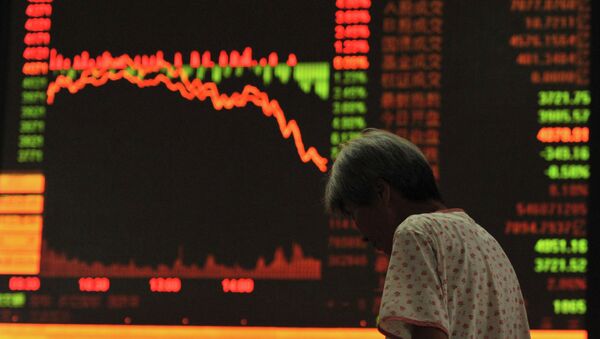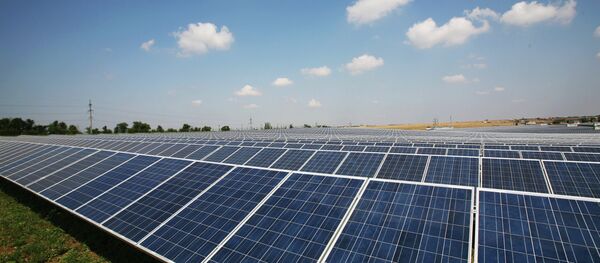Kristian Rouz — Having slumped by some 8% on Monday after the IMF called on Beijing to abstain from its excessive involvement in the stock market, the Chinese bourses extended the rout on Tuesday due to investors gradually losing their confidence in the government's ability to revive effective demand for shares by offering a new growth strategy. Consequently, global commodities prices went down because of the waning demand in mainland China for raw materials and energy as the nation's economy falters.
On Monday, trading in mainland China was marred by the IMF's criticism of the prohibitive regulatory measures taken by the government previously, resulting in almost half of the equity market frozen, and the other half 'insistently advised' not to sell. After the IMF warning, the Shanghai Composite crashed some 8%, prompting Beijing to initiate a probe into ‘dumping' shares. However, the market responded to the threats by a continued sell-off, with investors fleeing the staggering economy.
Another regulative measure aimed at supporting the market's value, was the previously announced intent by the China Securities and Regulatory Commission (CSRC) to buy equities in order to — at least — stabilize the market. The People's Bank of China also promised further easing of its monetary policies, accompanied by generous cash injections into the market in an attempt to lure investors into buying.
Nothing worked.
The Shanghai Composite Index shed 1.7% to 3,663 at Tuesday's close, after fluctuating between 1% gains and 5.1% losses during the day. Among the biggest losers were energy and tech shares, the former reflecting the fading demand for fuel in line with the depreciating oil price, the latter corresponding to the slowing global trading in technologies and know-how as many foreign hi-tech firms are pulling out of China as part of ‘reshoring' trend which has accelerated in recent months. The Financials sector gained, however, as Beijing's cash injections have fallen into the right hands, with brokerages and traders capitalizing on high volatility.
The two-day decline in Chinese stocks wiped out some $613 bln worth of financial assets. Even though Beijing has repeatedly emphasized their support for the market, investors' confidence is weakening.
The CSI300 Index of the biggest companies listed in Shanghai and Shenzhen shed 0.2%.
The two-day decline in stocks ended the three-week period of stability in the mainland's bourses. The main reason for the weakened investors' confidence, though an important factor, is not the IMF's warning. On Monday, one of the state-controlled Chinese banks, also one of the largest margin lenders, withdrew from the stock market a certain volume of monetary liquidity it borrowed, in turn, from commercial banks, effectively triggering a market crash.
In Hong Kong, the Hang Seng Index rose 0.6% after dropping to its three-week lowest the previous day. The Hang Seng China Enterprises, however, slid 0.5%, meaning growth in the broader index was a reflection of capital movements rather than market confidence.
Currently, the consensus expectations of market participants are for the mainland stocks to plunge another 15% in the coming month to finally stabilize after bottoming out. The lowest point will reveal itself after the negative effects of the excessive margin lending and governmental manipulation will have paid off. After that, Chinese equity trading will move determined by fundamental factors, mainly growth in the real economy, and will depend on Beijing's ability to readjust the nation's productive forces to the recent challenges and trends.





